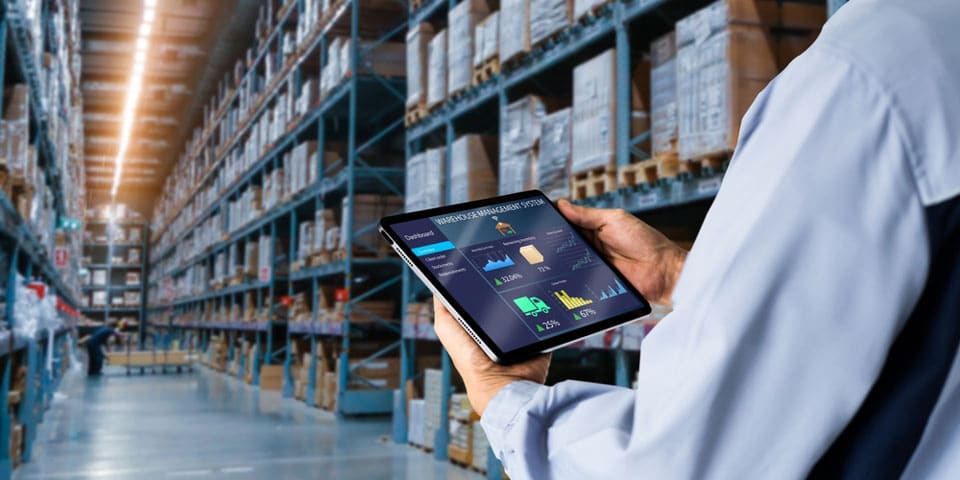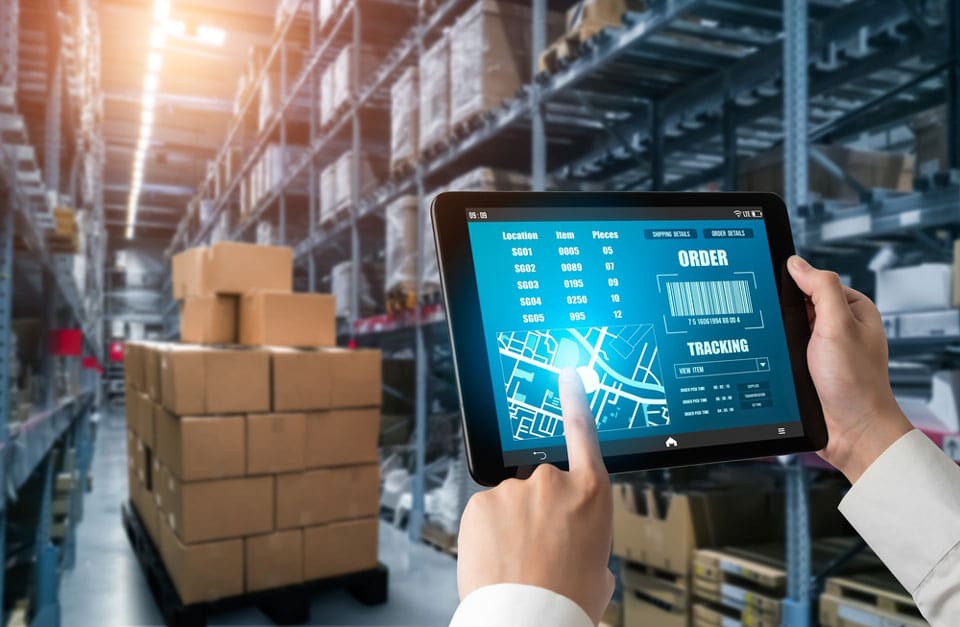IoT in Supply Chain Management: Streamlining Logistics and Distribution

Supply chain management in today’s highly agile and tech-driven world is a matter of much importance for the survival of businesses and the fast-changing needs of customers. The emerging global market has made supply chains more complex, thus, posing difficulty for companies to efficiently manage and optimize their processes. However, with the coming of the Internet of Things (IoT), organizations can now leverage modern solutions to optimize their supply chain activities.
IoT in Logistics
IoT implementation in logistics was an innovative push for the industry. The universal system consisting of devices, sensors, and systems enables organizations to obtain real-time data and awareness of every link of their supply chain. Consequently, they can make the right decisions and improve the efficiency of their activities. IoT devices are used in warehouses, transport vehicles, and products themselves providing real-time tracing and control of the entire supply chain.
The Role of IoT in Supply Chain Management & Logistics
IoT has made logistics and supply chain management solutions more data-oriented. Combining sensors, analytics, and automation creates a powerful union that allows companies to control stock levels, delivery times, route locations, and many other parameters. This streamlines the whole process of supply chain, enhances the visibility and communication of the stakeholders.
Predictive analytics can be used to forecast demand and inventory optimization with the additional help of IoT. This approach eliminates the risks of overstocking and stockouts as well as cost savings and customer satisfaction. Again, IoT-enabled autonomous vehicles and drones utilized in logistics focus on eliminating human errors in the process of delivery and an increased speed and precision in delivery.

Challenges of IoT in Supply Chain Management
Main challenges for businesses to consider once they start using the Internet of Things and supply chain management are interoperability, security and privacy concerns and high initial costs.
Interoperability is the seamless communication and integration of various systems and devices throughout the supply chain. The IoT devices and systems application may bring businesses to the issue of the ‘consistency’ of all devices and systems to speak to each other. This improper management results to time and bottlenecks in the processes of the supply chain that in turn affect the operation integrity.
The question of data security and privacy is also crucial in IoT and supply chain management. Data is being transmitted between devices and therefore, a strong defense mechanism are needed by businesses to protect this data. Such includes encryption, authentications, and scheduled updating to protect the system from cyber-attacks. Loss of money, poor reputation and legal liability are some of the risks that accompany data breaches to companies hence, making data security critical.
To address these issues, a deliberate strategy of IoT is needed in the supply chain process of businesses. This is about making the appropriate investments in the tools and systems, ensuring compliance and data protection. In addition to the internal sharing of data and insights of suppliers and partners, the collaboration will also increase interoperability and process optimization. As the IoT is being adopted by businesses and progress is being made, these challenges are expected to diminish, and hence, the Internet of Things supply chain management process is going to flow smoothly and efficiently.

How to streamline supply chain processes with IoT
The introduction of IoT in the supply chain process as a task for businesses is a major challenge. This includes the right technology investment and coordination with suppliers and partners, as well as ensuring data security. But through the implementation of the below strategies, businesses can use IoT to make their supply chain processes more efficient.
- Invest in IoT-enabled devices and systems
The first stage of IoT-based supply chain process optimization is the purchase of IoT-powered devices and systems. These involve sensors, trackers, and automated equipment. These instruments collect live data and offer businesses a full view of their supply chain. The data collected may comprise details about the place, temperature, humidity and so on. The data can now be evaluated to improve processes, save costs, and enhance overall productivity. - Utilize predictive analytics
Predictive analytics system is a powerful tool to blend historical data and current data and to forecast future demand with a high level of accuracy. Predictive analytics aids businesses in managing inventory levels ensuring that there are no stockouts nor overstocking. Therefore, cost reduction, improved inventory management and in the end, customer satisfaction are reached. In addition, they can also be used in predictive maintenance which is aimed at avoiding breakdowns and minimizing unexpected supply chain disruptions. - Liaise with suppliers and partners
Supplier and partner collaboration and communication are very important in a successful supply chain. Using IoT, businesses can communicate with their suppliers and partners in real-time data and insights, leading to operation optimization and synchronization. This results in lead time reductions, product quality improvements and minimal waste. When stakeholders work as a team, they can all improve their processes and as a result, make the supply chain more efficient. - Maintain data security
Data security is one of the key areas of the supply chain IoT application. Because IoT devices send information of the most sensitive nature, enterprises should have the most robust security. With the help of the data security, companies will manage to shield themselves from the cyber threats and keep any losses of data at bay.
The optimization of supply chain processes based on IoT is an iterative process that requires collaboration, sophisticated technology, and security control. Other benefits, but not least, include correct investing in IoT-enabled devices and systems, predictive analytics, cooperation with suppliers and partners, and data security can enhance the efficiency of the supply chain processes. This in turn ensures that the companies are always ahead in the market. With the recent growth of IoT adoption, it is critical for businesses to implement this IoT supply chain management and utilize it to the fullest.
In conclusion, IoT in supply management has a very significant impact on the logistics and distribution industry. Using real-time data and insights allows businesses to improve visibility, processes, and efficiency as a whole. On the other hand, the organizations should also be ready to face challenges like interoperability and data security that may prevent the organizations from realizing of full benefits of IoT. By following the strategies mentioned above and engaging IoT development company, businesses will be in charge of streamlining supply chain processes and staying ahead in the competitive market.
Have you read?
Revealed: These Are The Countries with Highest Rates of Infant Mortality.
Report: Austria Citizenship by Investment Programme, 2023.
Report: Cambodia Citizenship by Investment Programme, 2023.
Report: Dominica Citizenship by Investment Programme, 2023.
Report: Egypt Citizenship by Investment Programme, 2023.
Report: Grenada Citizenship by Investment Programme, 2023.
Bring the best of the CEOWORLD magazine's global journalism to audiences in the United States and around the world. - Add CEOWORLD magazine to your Google News feed.
Follow CEOWORLD magazine headlines on: Google News, LinkedIn, Twitter, and Facebook.
Copyright 2025 The CEOWORLD magazine. All rights reserved. This material (and any extract from it) must not be copied, redistributed or placed on any website, without CEOWORLD magazine' prior written consent. For media queries, please contact: info@ceoworld.biz








